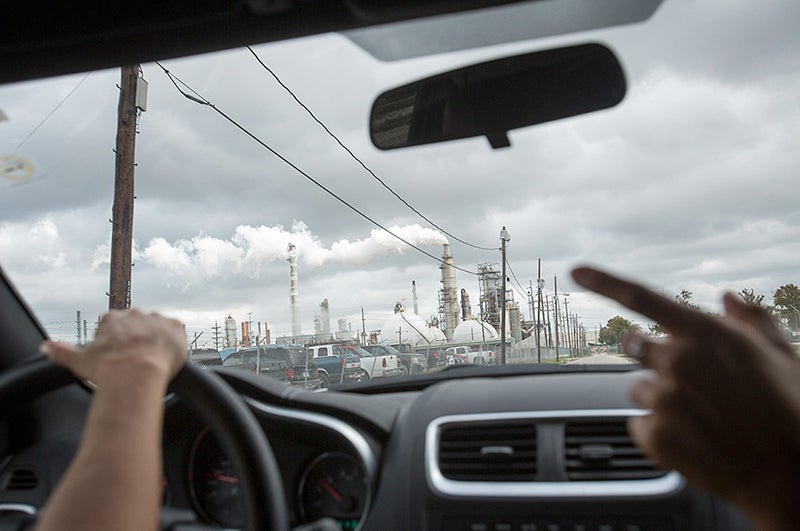Earthjustice goes to court for our planet.
We’re here because the earth needs a good lawyer.
Civil Rights Victory in Texas is a Model for Environmental Progress Nationwide
This page was published 4 years ago. Find the latest on Earthjustice’s work.
In a win for civil rights and environmental protection in Texas, the state has agreed to guarantee access to information and opportunities for Spanish-language and other non-English dominant communities to participate in decisions that affect their environment and health, including the siting of polluting facilities and infrastructure.
The state’s agreement results from a 2019 complaint Earthjustice filed against Texas, on behalf of Texas Environmental Justice Advocacy Services (t.e.j.a.s.) and Sierra Club. “This is an important first step in addressing language barriers in Texas,” says Juan Parras, executive director of t.e.j.a.s.
Equitable language access is critically important for public health and environmental protection in Texas.
- As a bastion of the nation’s oil and gas industry, Texas frequently grants permits for oil refineries and chemical plants to be built and developed adjacent to predominantly Latinx communities.
- Manchester, Texas, an area where t.e.j.a.s. often works, is encircled by 30 chemical plants and waste sites.
- The nation’s fourth largest city, Houston, Texas, is studded with oil refineries and ranks among the most polluted cities in the country.
- Both Manchester and Houston have large Latinx and immigrant communities, which are forced to marshal scant resources to defend against the worsening environmental conditions.
- As environmental quality falls, the public health costs rise. For example, a 2019 study found that in Texas alone, excess emissions of sulfur dioxide and nitrogen oxides cost an estimated $150 million each year in health damages.
Title VI of the Civil Rights Act forbids agencies that receive federal funding from discriminating on the basis of race, color, or national origin.
- The EPA and the Texas Commission on Environmental Quality (TCEQ) reached a binding agreement in response to a 2019 civil rights complaint filed by Earthjustice on behalf of t.e.j.a.s. and the Sierra Club.
- The complaint alleged that TCEQ was acting in violation of federal law by failing to require translation and interpretation services that would encourage the full and equal participation of non-English-speaking residents in environmental permitting decisions.
- Many Texans have historically faced steep barriers to filing environmental complaints, receiving notice of public meetings, and opposing state permits that allow petrochemical plants and other polluting facilities to fill their communities with toxic air pollution.
- More than 9 million Texans speak a language other than English at home, and a significant proportion of Texans have limited English proficiency.
- With this agreement, Texas is poised to topple hurdles that have stymied participation in the civic process, while also addressing racial and economic injustices that are made worse by constant toxic exposure.
Among other actions, the state is now required comply with the Civil Rights Act through mandatory measures, including:
- developing a public participation plan to ensure meaningful, non-discriminatory public involvement in the agency’s decision-making process;
- translating “vital documents” and providing real-time oral interpretation at public meetings when necessary;
- implementing a policy to ensure meaningful access for people with disabilities, including no-cost aids and services and the right to request and receive accommodations; and
- training its staff in nondiscrimination policies and submit to EPA oversight while it works through the steps it agreed to take.
While this agreement marks an important milestone for civil rights and environmental protection in Texas, such progress is vital in many other parts of the country.
In states including California, Colorado, Illinois, Louisiana, and New Jersey, language-access barriers are blocking immigrant and Native American communities from civic processes and perpetuating environmental injustices.
Parras believes this effort can be a model for building environmental awareness and unlocking civic power in communities. “This agreement will increase avenues for participation for diverse communities,” he says. “People are going to be more informed and be able to better understand and address the myriad environmental issues that affect their daily lives.”
Earthjustice will continue to work with t.e.j.a.s. and groups facing similar challenges around the country to expand access to justice and defend the right of communities to protect their health and environment.
